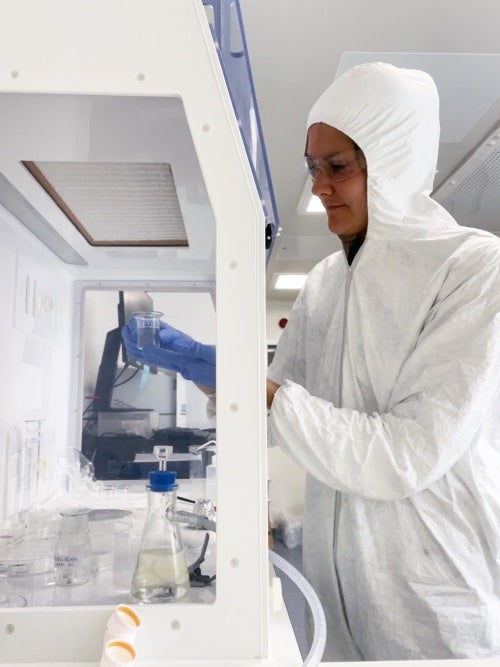There are multiple graduate programs in Oceanography offered through URI-GSO.
Doctorate (Ph.D.)
-
- Typically 5-6 years to complete
- Annual stipend (~$40,000, depending on student level. See “Stipend Rates & Levels of Appointment” for details), health benefits and tuition covered
- Involves course work, comprehensive exam, research credits, thesis proposal defense, research cruise (minimum 5 days at sea), and final thesis defense
Masters of Science (M.S.)
-
- Typically 2-2.5 years to complete
- Annual stipend (~$40,000, depending on student level. See “Stipend Rates & Levels of Appointment” for details), health benefits and tuition covered
- Involves course work, research credits, thesis proposal defense, research cruise (minimum 5 days at sea) and final thesis defense
Doctorate and Master of Science Program Tracks
At the Graduate School of Oceanography, students pursuing a Master of Science degree or Ph.D. focus on a specific area of oceanography – biological, chemical, geological, and physical – and explore interdisciplinary and related areas such as atmospheric chemistry. Students typically concentrate in one of the four tracks, and the courses and requirements differ among them:
Biological Oceanography
Biological oceanographers study the relationship between living organisms in the ocean and their environment. Students may choose from a wide variety of courses specializing in specific organism groups such as microbes, phytoplankton, zooplankton, and fish, as well as courses in the ecology of organism groups or ecosystems.
Marine and Atmospheric Chemistry
Chemical oceanographers study the chemical composition of seawater and how it is affected by physical mixing processes and by interactions with the atmosphere, the biosphere, and the sediments and rocks that form the seafloor. The most basic courses include chemical oceanography and the distribution of chemical species in seawater. Students may also specialize in the organic chemistry of seawater and sediments, physical chemistry of seawater, geochemistry of natural and artificial radionuclides, photochemical reactions in seawater, air-sea chemical interactions, and the chemical cycling of elements important to biological systems such as carbon, sulfur, and nitrogen.
Atmospheric Chemistry
Atmospheric Chemistry is a subdiscipline of chemical oceanography. The basic course, chemistry of the marine atmosphere, is supplemented by specialized classes in aerosols, gases and meteorology. Students may specialize in atmospheric transport, atmospheric pollution, or the reactions taking place in the atmosphere.
Marine Geology and Geophysics
Geological oceanographers study the composition, structure and processes associated with sedimentation and rock-forming processes in the ocean basins and within the Earth’s interior.
Research opportunities in marine geology and geophysics exist for students interested in marine geophysics, geodynamics, volcanology, geochemistry, paleoceanography, paleoclimatology, environmental magnetism, and seismology.
Physical Oceanography
Physical oceanographers seek to understand the physical processes that govern the circulation of the ocean and the coupled atmosphere-ocean system. Research opportunities exist for students to apply state-of-the-art techniques in: satellite remote sensing; computer modeling of atmosphere and ocean processes; laboratory modeling of geophysical fluid dynamics; observational studies in air-sea interaction, mixing processes, or large-scale circulation — often using unique instruments developed at the University. We attempt to engage students in ongoing research as soon as they arrive.
Next steps
For further information about the program, admissions and financial aid, contact:
Acting Associate Dean of Academic & Student Affairs; Associate Marine Research Scientist
Marine Geology and Geophysics
401.874.6926
rpockalny@uri.edu


